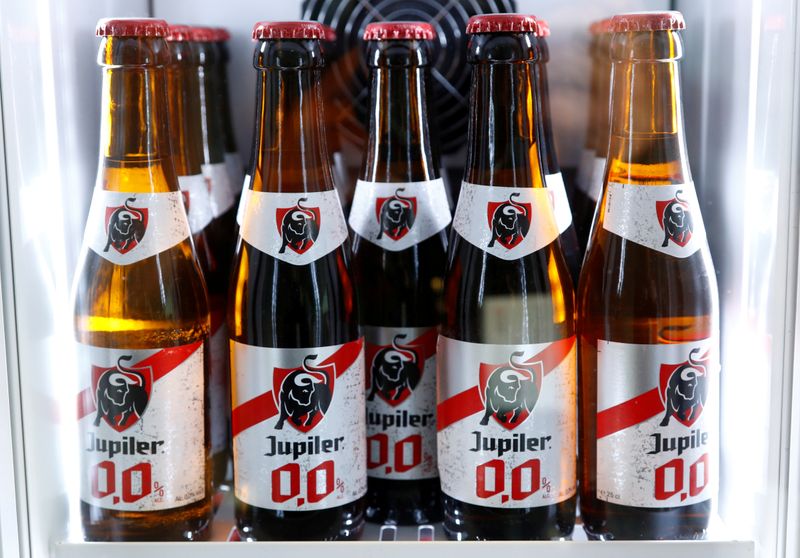Street Calls of the Week
Investing.com --Anheuser Busch Inbev SA NV (EBR:ABI) stock fell 9.3% after the brewing giant reported a significant volume miss in its quarterly results, primarily driven by weakness in Brazil where volumes declined 6.5%.
The company’s organic volume declined 1.9% versus consensus expectations of a 0.3% drop, with beer volume in Brazil falling by 9.0%, reflecting market share loss in a soft industry.
China also contributed to the disappointing performance with volumes down 7.4% due to market share losses.
North America was a bright spot, with volumes growing 0.3%, exceeding expectations as the region gained market share despite mixed results at the retail level. U.S. sales to retailers declined by 2.1% while sales to wholesalers grew 0.2%, suggesting some trade loading during the quarter.
Despite volume challenges, AB InBev maintained profitability in line with expectations through pricing strategies and cost control measures. The company also increased marketing and sales expenses by 50 basis points.
AB InBev reported that second-quarter underlying earnings per share rose 8.7% to $0.98, up from $0.90 a year earlier, as higher prices and expanding margins offset a 1.9% decline in global volumes.
The brewer’s normalized EBITDA rose 6.5% to $5.3 billion, with margins improving by 116 basis points to 35.3%.
Organic revenue increased 3%, supported by a 4.9% rise in revenue per hectoliter. Reported revenue declined 2.1% to $15 billion due to unfavorable currency translation.
On a constant currency basis, underlying EPS rose 17.4%. Underlying profit rose to $1.95 billion from $1.81 billion, and profit attributable to equity holders grew to $1.68 billion from $1.47 billion. Global beer volumes fell 2.2%, while non-beer volumes rose 0.3%.
In the U.S., revenue rose 2.1%, while volumes declined 2.1%. Sales to wholesalers increased 0.2%, and EBITDA grew 4.2%. In Mexico, revenue and volume increased by mid-single digits, driven by premium brands and no-alcohol products.
In China, revenue fell 6.2% and volumes dropped 7.4%, with EBITDA down 3.4%.
Europe posted low-single-digit revenue growth and flat volumes, supported by premiumization and a 31% increase in no-alcohol beer volume, led by Corona Cero.
"A meaningful volume miss (organic volume decline -1.9% versus company compiled consensus -0.3%) was primarily a function of 6.5% volume decline in Brazil. While North America did much better than expected (+0.3%), this was not enough to offset volume shortfalls in all the other regions," according to RBC analysts.
RBC added that AB InBev’s operational performance has potential to improve meaningfully given its dominant market positions.
Free cash flow reached $1.4 billion in the first half, up from $0.9 billion. Normalized EBITDA for the half rose 7.2% to $10.2 billion, with margins up 166 basis points. Underlying EPS increased to $1.79 from $1.66.
Net debt rose to $68.1 billion from $60.6 billion at year-end 2024. The net debt to EBITDA ratio was 3.27x, compared with 3.42x a year earlier.
The company maintained its full-year outlook, guiding for 2025 EBITDA growth between 4% and 8%, capital expenditures of $3.5 billion to $4 billion, and a normalized tax rate of 26% to 28%.
